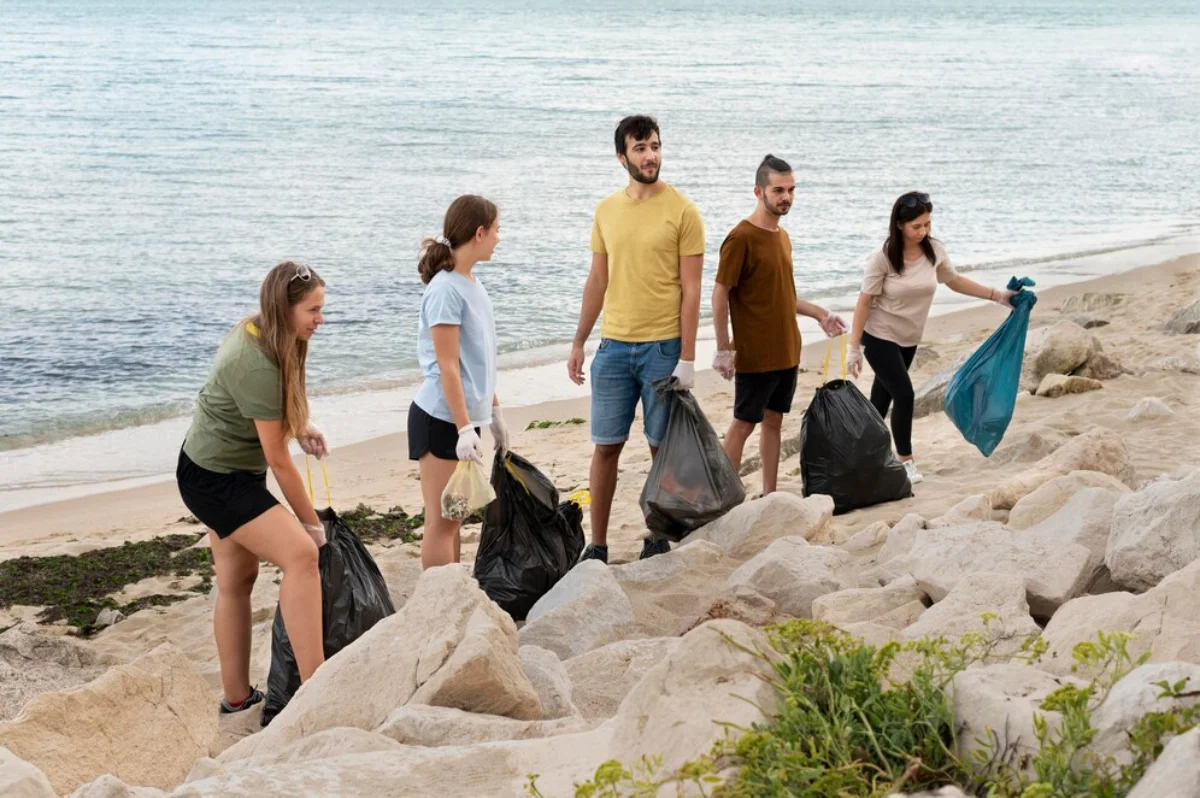
How to Travel with Zero Waste: Tips for Conscious Explorers
Travelling is a splendid gateway to new cultures and friendships. It paints unforgettable memories on the canvas of your life. Yet, as wanderlust reigns supreme, environmental impact raises its hand. Zero-waste travel is in the spotlight as the world becomes aware of carbon footprints. This guide serves as your compass, offering practical tips for eco-conscious adventurers. Embrace a journey that’s gentle on the planet and rich in experience.

Key Benefits of Zero-Waste Travel
Zero-waste travel is not just a trend; it’s a movement towards a more sustainable and responsible way of exploring the world. By adopting zero-waste principles, travellers can significantly reduce their environmental impact, contributing to preserving the planet for future generations.
Why Zero-Waste Travel Matters
The tourism industry produces a lot of waste. This includes single-use plastics and carbon emissions. Choosing zero-waste travel helps fight this problem. Here’s why it’s important:
- Environmental Preservation: Reducing waste helps protect natural habitats and wildlife. This is especially important in tourist areas, where waste can harm local ecosystems.
- Zero-waste travel promotes using renewable resources. It also cuts down on wasteful consumption. This helps to conserve precious resources and reduce the demand for new materials.
- Cultural Respect: Many cultures worldwide have a deep reverence for nature. By adopting zero-waste practices, you are showing respect for these cultures and their values.
- Personal Fulfilment: Travelling with a zero-waste mindset can be incredibly rewarding. It encourages mindfulness and a deeper connection with the places you visit.

Step-by-Step Guide to Zero-Waste Travel
Embarking on a zero-waste travel journey requires some planning and preparation, but the rewards are well worth the effort. Here’s a step-by-step guide to help you become an eco-conscious traveller.
Step 1: Plan Ahead
Successful zero-waste travel begins with careful planning. Consider the following steps:
Research Your Destination
Before you travel, research the waste management practices of your destination. Some countries have excellent recycling facilities, while others may not. Understanding the local infrastructure will help you make informed decisions.
Choose Sustainable Accommodation
Look for accommodations that prioritise sustainability. Many hotels and hostels now offer eco-friendly options, such as composting, recycling, and energy-efficient practices. Consider staying in places that support local communities and use renewable energy sources.
Step 2: Pack Sustainably
Sustainable packing is a crucial aspect of zero-waste travel. Here are some tips to help you pack with the planet in mind:
Use Reusable Items
Invest in reusable travel essentials like water bottles, coffee cups, and shopping bags. These items will significantly reduce your reliance on single-use plastics.
Opt for Eco-Friendly Toiletries
Choose solid toiletries like shampoo bars and toothpaste tablets. These products are plastic-free and take up less space in your luggage.
Pack Light
Travelling light reduces your carbon footprint. It also makes it easier to move around and reduces the likelihood of overconsumption.
Step 3: Be Mindful During Your Trip
Once you’ve arrived at your destination, continue to practice zero-waste principles:
Support Local Businesses
Eating at local restaurants and shopping at markets helps the local economy. It also cuts down the carbon footprint linked to imported goods.
Avoid Single-Use Plastics
Carry your reusable items with you at all times and politely decline single-use plastics, such as straws and plastic bags.
Dispose of Waste Responsibly
If you generate waste, dispose of it responsibly. This may involve carrying it with you until you find appropriate recycling facilities.

Additional Expert Tips & Common Mistakes to Avoid
Even the most well-intentioned travellers can make mistakes. Here are some additional tips to help you stay on track and common pitfalls to avoid:
Expert Tips
- Engage with Local Communities: Participate in local environmental initiatives or volunteer for clean-up projects. This not only enriches your travel experience but also helps to give back to the community.
- Educate Yourself and Others: Learn about the environmental challenges faced by your destination and share your knowledge with fellow travellers.
- Offset Your Carbon Footprint: Consider offsetting your carbon emissions by donating to environmental projects or planting trees.
Common Mistakes to Avoid
- Overpacking: Bringing too many items can lead to waste. Stick to the essentials and avoid the temptation to overpack.
- Ignoring Local Customs: Some cultures may have specific waste disposal practices. Respect these customs and adapt your behaviour accordingly.
- Forgetting to Plan: Last-minute decisions often lead to wasteful choices. Take the time to plan your trip and make conscious decisions.
Advanced Insights / Expert Recommendations
For those looking to take their zero-waste travel to the next level, consider these advanced insights:
Choose Sustainable Transportation
Whenever possible, opt for sustainable modes of transport, such as trains or buses, over flying. If flying is unavoidable, consider booking direct flights to reduce emissions.
Support Eco-Friendly Tour Operators
Choose tour operators that prioritise sustainability and have a track record of responsible tourism. They often have partnerships with local communities and conservation projects.
Advocate for Change
Use your platform to advocate for sustainable travel practices. Post your experiences on social media. Invite others to join the zero-waste movement!
Conclusion: Embrace the Journey
Travelling with zero waste is its adventure. Requires careful choices and a commitment to sustainability. The rewards, however, are worth it. Zero-waste travel protects our planet and enriches your journey. So, pack your bags, start your quest, and embrace the adventure with an open heart and a mindful spirit!
Are you ready to become a zero-waste traveller? Share your experiences and tips in the comments below, and let’s inspire each other to travel more sustainably.


